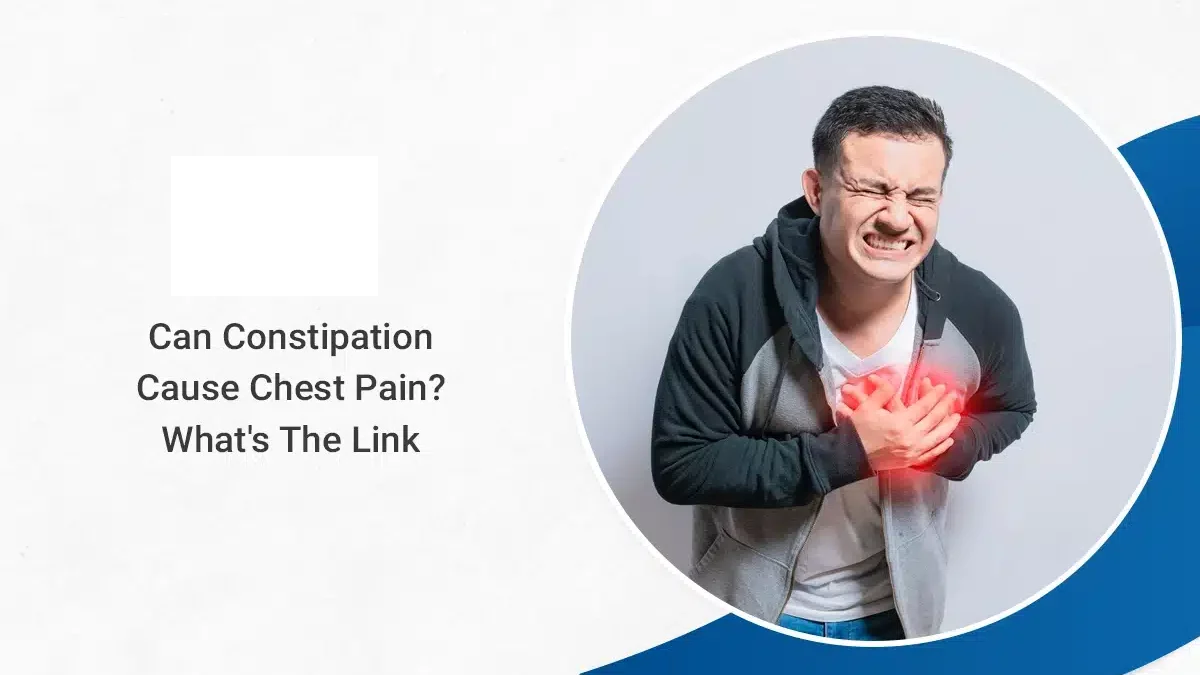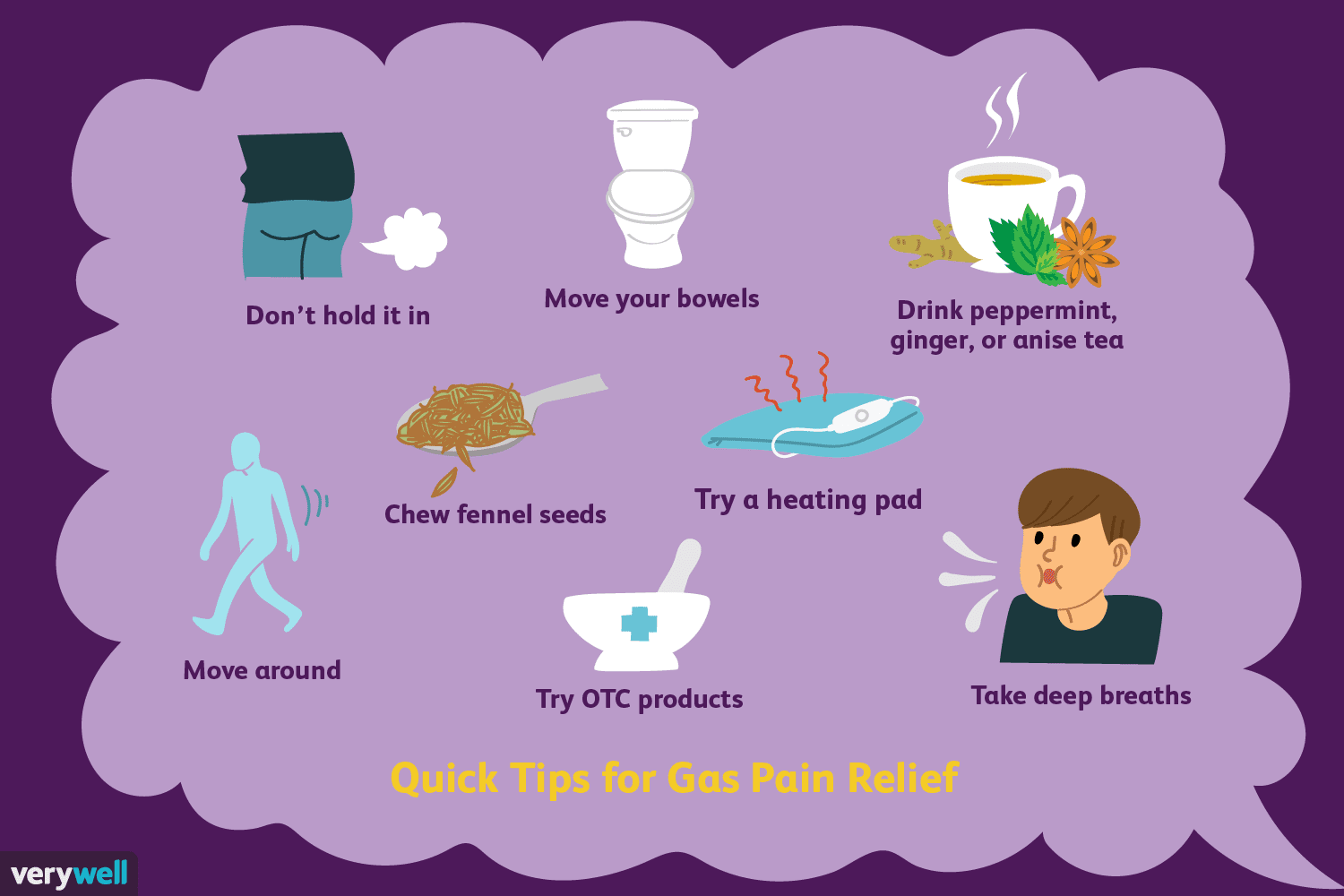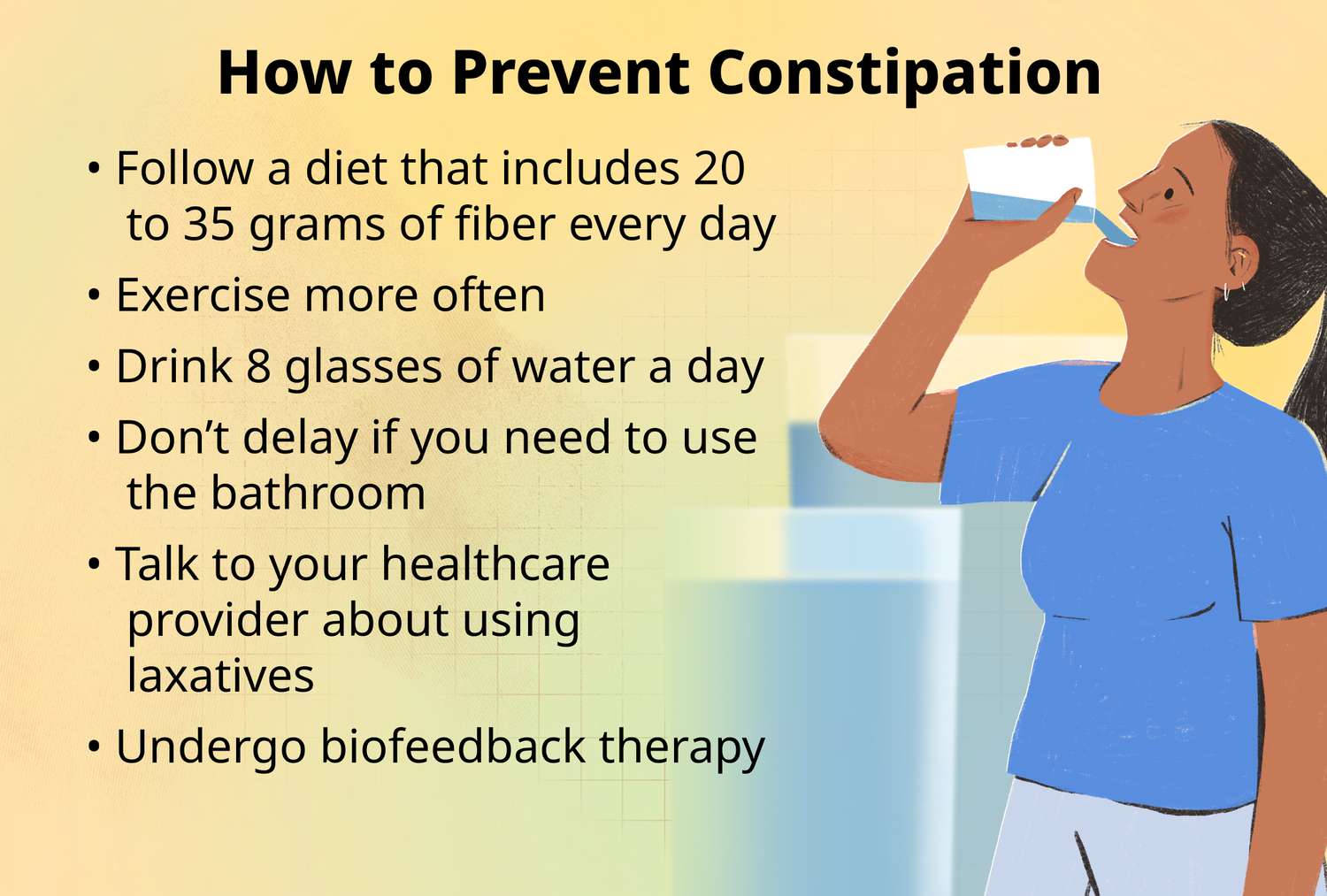
Embark on a journey to reclaim your vitality and well-being! If you've been grappling with the unwelcome duo of chest pain and constipation, this is your roadmap to relief. Uncover transformative insights and actionable strategies to alleviate discomfort and regain control of your health. Our expert-driven guide navigates the intersection of these challenges, offering you a holistic approach that addresses both symptoms. Say goodbye to the frustration and hello to a life of comfort and vitality.
Imagine a life where you can confidently embrace each day without the burden of chest pain and constipation weighing you down. This isn't just a guide; it's your personalized prescription for a healthier, happier you. Don't settle for mere survival, thrive! Dive into our curated tips, backed by expert knowledge, and take the first step towards a future free from the constraints of discomfort. Your journey to wellness begins now.
Chest Pain & Constipation - What's The Link?
While constipation is primarily associated with discomfort in the abdominal region, it can surprisingly also lead to chest pain. This indirect connection arises from the interplay between the gastrointestinal (GI) system and the chest cavity. When constipation occurs, the accumulation of hardened stool in the intestines causes a cascade of events that can manifest as chest pain.
Gastrointestinal Distress And Chest Pain
Constipation disrupts the normal flow of digestive contents through the intestines, leading to a buildup of gas and bloating. This accumulation of gas can put pressure on the diaphragm, a large muscle separating the chest and abdomen. The diaphragm plays a crucial role in respiration, and its irritation due to gas can lead to chest pain or discomfort.
The discomfort associated with constipation-induced chest pain is often described as a sharp or stabbing pain in the left side of the chest, similar to the sensation of heartburn. This pain can be exacerbated by certain movements, such as bending or twisting, and can worsen after meals.
Medical Research And Expert Opinions
While the exact mechanism by which constipation causes chest pain is not fully understood, several studies and expert opinions support this connection. A 2018 study published in the Journal of Clinical Gastroenterology found that patients with constipation were more likely to experience chest pain than those without constipation. Similarly, a review article published in the World Journal of Gastroenterology concluded that constipation could be a potential cause of non-cardiac chest pain.
Establishing The Link
To summarize, constipation can indirectly cause chest pain through the following mechanisms:
- Gas buildup and bloating -The accumulation of gas in the intestines due to constipation can put pressure on the diaphragm, leading to chest discomfort.
- Inflammatory mediators -Constipation can trigger the release of inflammatory mediators, which can irritate the chest wall and contribute to chest pain.
- Visceral hypersensitivity -Constipation can heighten the sensitivity of the nerves in the abdomen and chest, making individuals more susceptible to pain from gas or bloating.
It is important to note that chest pain associated with constipation is typically non-cardiac in origin and resolves with the treatment of constipation. However, if chest pain persists or is accompanied by other symptoms such as shortness of breath, sweating, or dizziness, it is crucial to seek immediate medical attention to rule out any underlying heart conditions.
Heartburn & Constipation Treatment At Home
Managing both heartburn and constipation can be frustrating, but fortunately, there are several simple home remedies and lifestyle changes that can effectively address both conditions simultaneously. Here are some practical tips to help you find relief:
Dietary Modifications
- Limit Heartburn Triggers -Certain foods can exacerbate heartburn, so try reducing or avoiding spicy, fatty, acidic, and fried foods.
- Increase Fiber Intake -Fiber plays a crucial role in regulating bowel movements and preventing constipation. Aim to consume 25-35 grams of fiber per day from sources like fruits, vegetables, whole grains, and legumes.
Hydration
- Stay Hydrated -Adequate hydration is essential for both digestion and preventing constipation. Aim to drink plenty of water throughout the day, especially before meals.
- Warm Water- Use warm water in your diet for better digestion and get rid of constipation.
Physical Activity
- Regular Exercise -Regular physical activity can help stimulate bowel movements and alleviate constipation. Engage in moderate-intensity exercises like brisk walking, swimming, or cycling for at least 30 minutes most days of the week.
- Yoga - Certain yoga poses, particularly twists and forward folds, can gently massage the abdominal organs, encouraging peristalsis, the wave-like muscular contractions that move food through the intestines. This can help to relieve constipation by promoting regular bowel movements.
Over-the-counter Medications
- Fiber Supplements - Fiber supplements like Metamucil or Benefiber can help soften stool and promote regular bowel movements.
- Antacids -Over-the-counter antacids like Tums or Rolaids can provide quick relief from heartburn by neutralizing stomach acid.
Additional Tips
- Eat smaller, more frequent meals -This can help prevent stomach from becoming overly full and reduce heartburn symptoms.
- Chew food thoroughly -Proper chewing helps break down food better, aiding digestion and reducing constipation.
- Maintain a healthy weight - Excess weight can put pressure on the digestive system, increasing the risk of both heartburn and constipation.
- Manage stress -Stress can worsen both heartburn and constipation. Practice relaxation techniques like yoga or deep breathing to manage stress levels.
Remember, consistency is key to managing both heartburn and constipation. By incorporating these simple home remedies and lifestyle changes into your daily routine, you can effectively alleviate these uncomfortable conditions and improve your overall digestive health.
Can Constipation Cause Other Pain?
Yes, constipation can cause other types of pain besides abdominal discomfort. This is because constipation can lead to a buildup of hard stool in the intestines, which can put pressure on other organs and tissues in the abdomen and chest. This pressure can lead to a variety of pain symptoms.
Here are some of the other types of pain that constipation can cause:
- Abdominal pain and cramping -This is the most common type of pain associated with constipation. It is caused by the buildup of hard stool in the intestines, which can put pressure on the abdominal wall and muscles.
- Bloating -Constipation can also cause bloating, which is a feeling of fullness and pressure in the abdomen. This is caused by the accumulation of gas in the intestines, which is a byproduct of the fermentation of undigested food.
- Back pain - In some cases, constipation can also cause back pain. This is because the pressure from the buildup of hard stool can put strain on the muscles in the back.
- Chest pain -As mentioned earlier, constipation can also indirectly cause chest pain. This is because the buildup of gas in the intestines can put pressure on the diaphragm, a large muscle that separates the chest and abdomen. The diaphragm plays a crucial role in respiration, and its irritation due to gas can lead to chest discomfort.
Here are some additional tips to help prevent constipation and relieve pain:
- Drink plenty of fluids -Aim to drink eight glasses of water per day. This will help to keep your stool soft and easy to pass.
- Exercise regularly -Exercise helps to stimulate your bowels and promote regular bowel movements. Aim for at least 30 minutes of moderate-intensity exercise most days of the week.
- Avoid straining during bowel movements -Straining can make constipation worse and can also lead to hemorrhoids. If you need to strain, take a break and try again later.
- Go to the bathroom when you feel the urge -Don't put off going to the bathroom when you need to go. This can lead to stool becoming hard and difficult to pass.
- Sit in a squatting position -This position can help to open up your rectum and make it easier to pass stool.
If you are still experiencing constipation or pain after following these tips, see a doctor. They can help you to identify any underlying medical conditions and recommend the best treatment for you.
How To Prevent Constipation?
Constipation, a common digestive issue characterized by infrequent or difficult bowel movements, can be effectively prevented through long-term lifestyle and dietary changes. By incorporating these proactive measures into your daily routine, you can maintain digestive health and minimize the risk of constipation.
Embrace A Fiber-Rich Diet
Fiber, the indigestible plant material found in fruits, vegetables, whole grains, and legumes, plays a crucial role in preventing constipation. It adds bulk to stool, facilitating its smooth passage through the intestines. Aim to consume 25-35 grams of fiber daily from sources like:
- Fruits - Apples, berries, pears, oranges, prunes
- Vegetables - Broccoli, carrots, spinach, leafy greens
- Whole grains - Brown rice, quinoa, oats, whole-wheat bread
- Legumes -Beans, lentils, peas
Incorporate Regular Exercise
Physical activity stimulates the muscles of the intestines, promoting regular bowel movements and preventing constipation. Aim for at least 30 minutes of moderate-intensity exercise most days of the week. Activities like brisk walking, jogging, swimming, or cycling can effectively counteract the sluggishness associated with constipation.
Maintain Adequate Hydration
Water plays a vital role in keeping stool soft and easy to pass. Aim to drink eight glasses of water per day, especially before meals, to ensure sufficient hydration for optimal digestion. If you exercise regularly or live in a hot climate, increase your water intake accordingly.
Establish Regular Bowel Habits
The urge to defecate is a natural cue from the body. Resist the urge to postpone or ignore it, as delaying bowel movements can lead to stool hardening and constipation. Try to establish a regular bowel routine, preferably after breakfast or a meal, to train your body's natural rhythm.
Avoid Habits That Hinder Digestion
Certain habits can contribute to constipation and should be avoided or modified:
- Excessive Caffeine and Alcohol Consumption -Caffeine and alcohol can have a dehydrating effect, making stool harder and more difficult to pass. Limit your intake of these substances to prevent constipation.
- Over-Reliance on Processed Foods -Processed foods are often low in fiber and high in unhealthy fats, which can contribute to constipation. Prioritize whole, unprocessed foods for optimal digestive health.
- Inadequate Sleep - Sleep deprivation can disrupt hormones that regulate bowel movements, increasing the risk of constipation. Aim for 7-8 hours of quality sleep each night to support digestive well-being.
- Stress - Chronic stress can interfere with bowel function and increase the likelihood of constipation. Practice stress-management techniques like deep breathing, yoga, or meditation to promote digestive health.
By incorporating these long-term lifestyle and dietary changes, you can effectively prevent constipation and maintain a healthy digestive system. Remember, prevention is key, proactively addressing your digestive health through these measures can save you from the discomfort and inconvenience of constipation.
When To Seek Medical Help?
While occasional constipation and chest pain are often harmless and can be managed with home remedies, it is crucial to seek medical attention when these symptoms persist or are accompanied by other concerning signs.
Seek Immediate Medical Attention If You Experience
- Severe abdominal pain -Intense and persistent abdominal pain, especially if accompanied by fever, nausea, or vomiting, could indicate a serious underlying medical condition, such as appendicitis or a bowel obstruction.
- Blood in the stool -The presence of blood in the stool, whether bright red or dark, could be a sign of bleeding in the digestive tract, which requires prompt medical evaluation.
- Unusual changes in bowel habits -A sudden change in bowel habits, such as frequent diarrhea or constipation lasting for more than a week, could indicate an underlying digestive issue or other medical condition.
- Unexplained weight loss -Unexplained and unintentional weight loss, especially when accompanied by other digestive symptoms, could be a sign of a serious medical condition, such as cancer or inflammatory bowel disease.
- Chest pain that worsens with activity or breathing - Chest pain that intensifies with physical exertion or respiration could indicate a heart-related issue, such as angina or a heart attack.
- Chest pain accompanied by shortness of breath, sweating, or dizziness -Chest pain combined with shortness of breath, sweating, or dizziness could be a sign of a heart attack or other serious cardiac condition.
Seek Medical Attention If Constipation Or Chest Pain Persists Despite Home Remedies
If you have tried home remedies to alleviate constipation or chest pain, but the symptoms persist or worsen, it is advisable to consult a doctor. They can assess the underlying cause of your symptoms and recommend appropriate treatment.
Remember, early diagnosis and treatment of medical conditions can significantly improve outcomes. If you have any concerns about your digestive health or chest pain, do not hesitate to seek professional medical advice.
See Also: Why Does My Chest Hurt When I Eat? Causes And Treatment
Chest Pain And Constipation - FAQ's
How Can I Relieve Gastric Chest Pain At Home?
Drink warm liquids and herbal teas. Water can aid in passing the excess gas through the digestive tract and can ease gas pain and discomfort. Warm water or herbal teas can be very relaxing. Cucumber juice, coconut water, ajwain water, and saunf water are also options.
Is Chest Pain Common With Constipation?
The pressure build-up, reflux, and vagus nerve activation associated with constipation can cause chest discomfort. By addressing constipation through dietary adjustments, hydration, exercise, and, if necessary, medical intervention, you can potentially alleviate chest pain and promote overall digestive health.
What Is The Best Juice For Constipation?
Prune, apple and pear juices have higher amounts of sorbitol than other fruit juices. Prune juice might be the juice most known for its laxative effects. A 2022 study in The American Journal of Gastroenterology suggests that prune juice can soften hard, lumpy stools in people with chronic constipation.
Conclusion
In conclusion, the path to overcoming chest pain and constipation is within reach, and you're not alone on this transformative journey. Armed with valuable insights, practical strategies, and a renewed sense of empowerment, you have the tools to break free from the grip of discomfort. Remember, small changes can lead to significant improvements in your overall well-being.
As you close the chapter on this guide, consider it not just as information but as a springboard for positive change. Whether it's adopting healthier habits, seeking professional advice, or making mindful lifestyle adjustments, the power to enhance your quality of life is in your hands. Here's to a future where chest pain and constipation are distant memories, and your days are filled with vitality, comfort, and the joy of living your best life.

